 The Centers for Disease Control and Prevention (CDC) is now recommending anyone born from 1946 through 1965, the generation known as the Baby Boomers, be tested for Hepatitis C.[1] The CDC is basing their recommendations on the following data:
The Centers for Disease Control and Prevention (CDC) is now recommending anyone born from 1946 through 1965, the generation known as the Baby Boomers, be tested for Hepatitis C.[1] The CDC is basing their recommendations on the following data:
- Baby Boomers are five times more likely to have Hepatitis C
- Greater than 75% of adults with Hepatitis C are Baby Boomers
- 3 million people in the U.S. have Hepatitis C and almost 75% of them do not know they are infected
- There is an increase in liver disease, liver cancer and deaths from Hepatitis C in the U.S.
People with Hepatitis C are often asymptomatic and can live with the infection for many years (even decades) without experiencing any symptoms. Therefore, the only way an individual would know if they have Hepatitis C is by checking for the Hepatitis C antibody in the blood.
It is not clearly understood why Baby Boomers have such high rates of Hepatitis C. The CDC believes that most individuals were probably infected in the 1970’s or 1980’s. Hepatitis C is known to be spread through contact with blood from another person. Individuals who received blood products before widespread screening began in 1992 are at high risk. Additionally, injecting illicit drugs is also known to be another cause. Many Baby Boomers who did not receive blood or use illicit drugs do not know how they were infected, which leads physicians and scientists asking for further study and analysis around Hepatitis C. Moreover, the increase in morbidity and mortality trends in the general population from Hepatitis C makes testing for this antibody very important to insurance underwriting.
In order to facilitate greater scientific insights, Quest Diagnostics (NYSE: DGX), the world’s leading provider of diagnostic information services, is collaborating with the U.S. Centers for Disease Control and Prevention (CDC) to improve public health analysis of Hepatitis C screening, diagnosis and treatment, based on analysis of the company’s national Hepatitis C virus diagnostic information. Under an agreement announced on July 10, 2013, medical experts, scientists and health informatics experts from Quest Diagnostics and the CDC’s Division of Viral Hepatitis will share access to de-identified Hepatitis C test results, in a HIPAA compliant manner, from the Quest Diagnostics Health Trends™ national clinical laboratory database, which represents every state and the District of Columbia. The de-identified data, with names and personally identifying information removed, will include results of screening and confirmatory diagnostic tests as well as genotyping and viral load tests used by clinicians to manage treatment.
An estimated 3.25% (1 in 31) of the baby boomers born in this period are expected to test positive for HCV. People who test positive for the HCV antibody should immediately discuss the result with their personal physician or healthcare provider and must be retested to confirm the presence of the infection. This test, called the Hepatitis C Viral (HCV) RNA Quant PCR, requires a second blood specimen be drawn and sent to Quest Diagnostics for testing. A Hepatitis C diagnostic test can be ordered directly through Quest Diagnostics.
[1] www.cdc.gov/features/HepatitisCTesting/
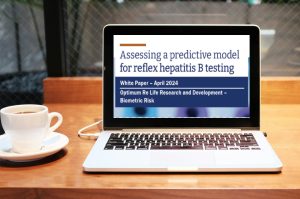

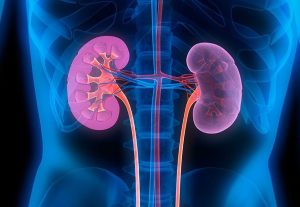


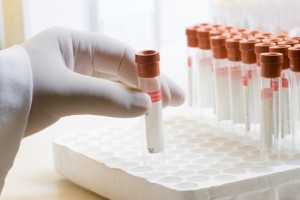

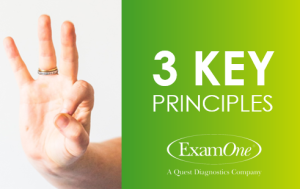




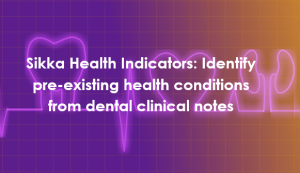

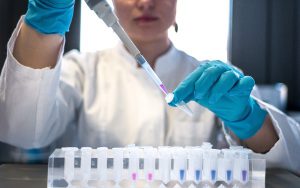




People with Hepatitis C are often asymptomatic and can live with the infection for many years (even decades) without experiencing any symptoms. Therefore, the only way an individual would know if they have Hepatitis C is by checking for the Hepatitis C antibody in the blood.
It is not clearly understood why Baby Boomers have such high rates of Hepatitis C. The CDC believes that most individuals were probably infected in the 1970’s or 1980’s. Hepatitis C is known to be spread through contact with blood from another person. Individuals who received blood products before widespread screening began in 1992 are at high risk. Additionally, injecting illicit drugs is also known to be another cause. Many Baby Boomers who did not receive blood or use illicit drugs do not know how they were infected, which leads physicians and scientists asking for further study and analysis around Hepatitis C. Moreover, the increase in morbidity and mortality trends in the general population from Hepatitis C makes testing for this antibody very important to insurance underwriting.
In order to facilitate greater scientific insights, Quest Diagnostics (NYSE: DGX), the world’s leading provider of diagnostic information services, is collaborating with the U.S. Centers for Disease Control and Prevention (CDC) to improve public health analysis of Hepatitis C screening, diagnosis and treatment, based on analysis of the company’s national Hepatitis C virus diagnostic information. Under an agreement announced on July 10, 2013, medical experts, scientists and health informatics experts from Quest Diagnostics and the CDC’s Division of Viral Hepatitis will share access to de-identified Hepatitis C test results, in a HIPAA compliant manner, from the Quest Diagnostics Health Trends™ national clinical laboratory database, which represents every state and the District of Columbia. The de-identified data, with names and personally identifying information removed, will include results of screening and confirmatory diagnostic tests as well as genotyping and viral load tests used by clinicians to manage treatment.
An estimated 3.25% (1 in 31) of the baby boomers born in this period are expected to test positive for HCV. People who test positive for the HCV antibody should immediately discuss the result with their personal physician or healthcare provider and must be retested to confirm the presence of the infection. This test, called the Hepatitis C Viral (HCV) RNA Quant PCR, requires a second blood specimen be drawn and sent to Quest Diagnostics for testing. A Hepatitis C diagnostic test can be ordered directly through Quest Diagnostics.
[1] www.cdc.gov/features/HepatitisCTesting/